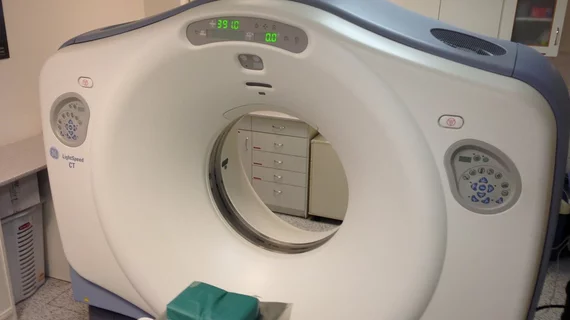Death of a woman who suffered allergic reaction to CT contrast prompts inquiry
Government officials are launching an inquiry into the death of a woman who suffered an allergic reaction to contrast dye she was given prior to a CT scan.
Peta Hickey, a senior executive living in Melbourne, Australia, was referred for a CT exam in May 2019 as part of her company’s corporate heart check program, Australian media company ABC News reported Thursday. But after the healthy 43-year-old was administered contrast, she sustained an anaphylactic reaction and later perished from multiple organ failure at Royal Melbourne Hospital.
According to the inquest, Hickey was never examined by a doctor before the scan and the referral was signed electronically by a doctor who had never met her. She agreed to take part in the program, which was established by her employer, Programmed, in 2018 after an employee went into non-fatal cardiac arrest.
General manager of the national building services company, Chris Sutherland, said he started the program because he didn’t want other employees to go through similar events. He has since canceled all future heart checks, the news outlet reported.
"I believed I was acting in the best interests of our employees to fund a heart check program for those managers who are at greater risk due to travel and stress,” Sutherland said in a statement while expressing his condolences for Hickey’s death.
The inquest is looking into the setup of the heart check program.
Read more below.

